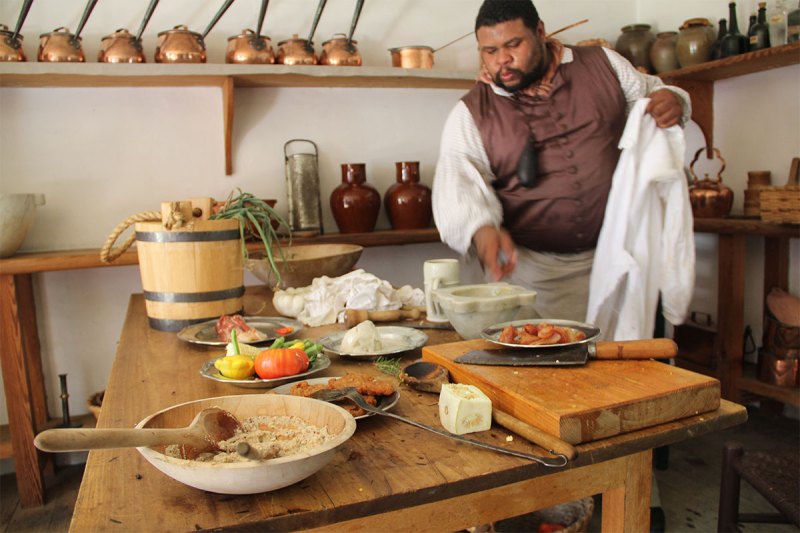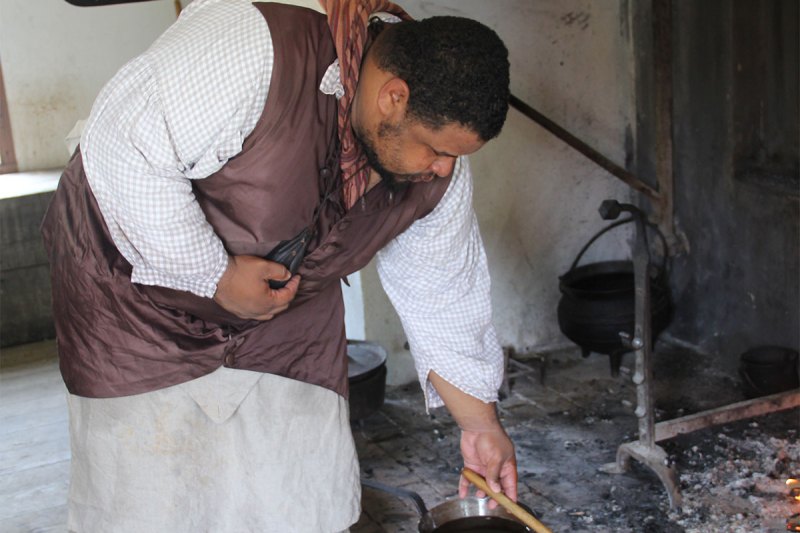As part of Colonial Williamsburg’s celebration of Black History Month, culinary historian Michael W. Twitty has created two dishes that typify 18th-century foods and that highlight the African American culinary heritage that kept colonists fed.
Through Twitty’s creations, you’ll be literally tasting history: both meals are direct descendants of foods that slaves in the US would have eaten.
Clearly, your world becomes a bit more interesting as soon as Michael Twitty is introduced into it. You’ll certainly never look at food the same way again. Twitty has an encyclopedic knowledge of the history of food, its cultural context, and the importance of its preservation. Through his writing, recipes, and heritage cooking methods, the centuries of people behind your favorite dishes suddenly come to life.
Twitty runs the hugely successful food blog, Afroculinaria, published his first cookbook, The Cooking Gene, and teaches Judaic studies. He also finds time to give a face to the thousands of forgotten enslaved chefs of the South who shaped an entire culinary culture by acting as a chef historical interpreter at places like Old Salem in North Carolina, Thomas Jefferson’s Monticello, and now at Colonial Williamsburg.

At Chowning’s Tavern you can tuck into Twitty’s Virginia BBQ Mop Ribs, a vinegar-based barbecue sauce that combines traditions from the West Indies, Jamaica, Africa, and even Native Americans. While enjoying these succulent ribs, you can reflect on the dish’s significance in the Underground Railroad.
Twitty explains: “Historically, BBQ was commonly cooked in the wilderness while traveling the Underground Railroad over a sapling grill constructed of oak and hickory logs that had burned down to a hot bed of coals, located over a hole in the ground. This dish celebrates enslaved African-American’s fight for freedom and is still enjoyed today, although the preparation varies.”

Also try his Chesapeake Crab Gumbo at the Sweet Tea & Barley. Louisiana may have the corner on gumbo these days, but it’s actually a 17th-century West African dish. The name evolved from the West African word for okra, so fittingly Twitty’s
“Likewise, for enslaved cooks, okra was a common thread in their cooking as part of a concerted effort to import familiar food to the Southern states that were reminiscent of home,” Twitty says. “The vegetable was most often prepared as gumbo – a peppery stew that was eaten with rice, millet, hominy or corn mush, and of course, is still served today.”
If you can’t make it to Colonial Williamsburg, you can find history and recipes on Twitty’s blog, as well as in his forthcoming cookbook. Michael Twitty makes learning utterly delicious.


